Technology is the answer to many of the world’s problems, Israel’s President Isaac Herzog told investors and business leaders in Jerusalem yesterday.
“But it can never replace the intention for good that is at the heart of our human civilization.”
He was addressing the OurCrowd Global Investor Summit, the biggest event of its kind in the Middle East, with a record attendance of over 9,000 people.
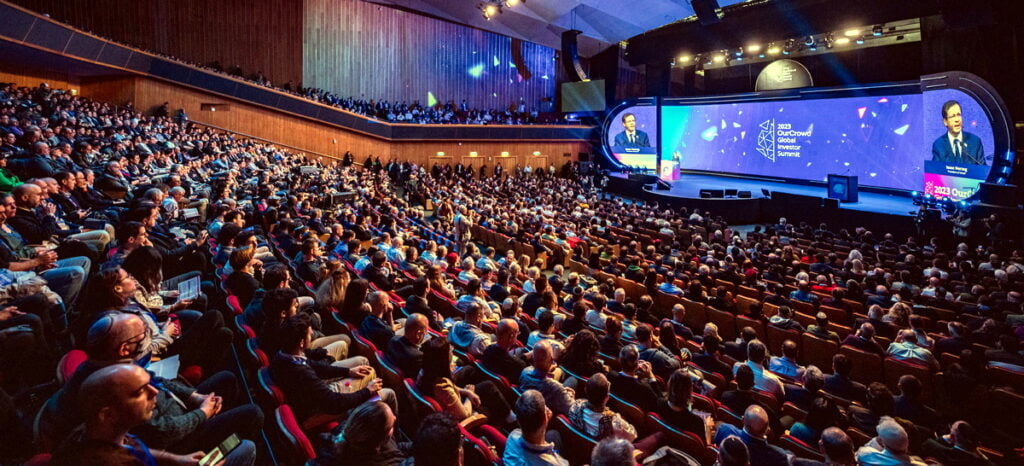
This year, the first time the event has been held since the Covid pandemic, the theme was “Startups: Saving The Planet”.
But the emphasis was not just on sustainability, reducing carbon emissions, and affordable alternatives to meat and milk from animals.
It was also on Israel’s flourishing trade links with some of its Arab neighbors, made possible by the Abraham Accords in September 2020.
The summit attracted Jerusalem’s largest ever delegation from the Gulf. And Morocco, one of the Accords signatories, brought representatives from an array of startups in fintech, AI, drones, Metaverse and Web3, solar energy, as well as technologies for physical fitness, training, human resources, and real estate.
“It is especially exciting to welcome our brothers and sisters from the Abraham Accord countries, with whom a joint conference of this nature would have been pure fantasy only a few short years ago,” the President said.
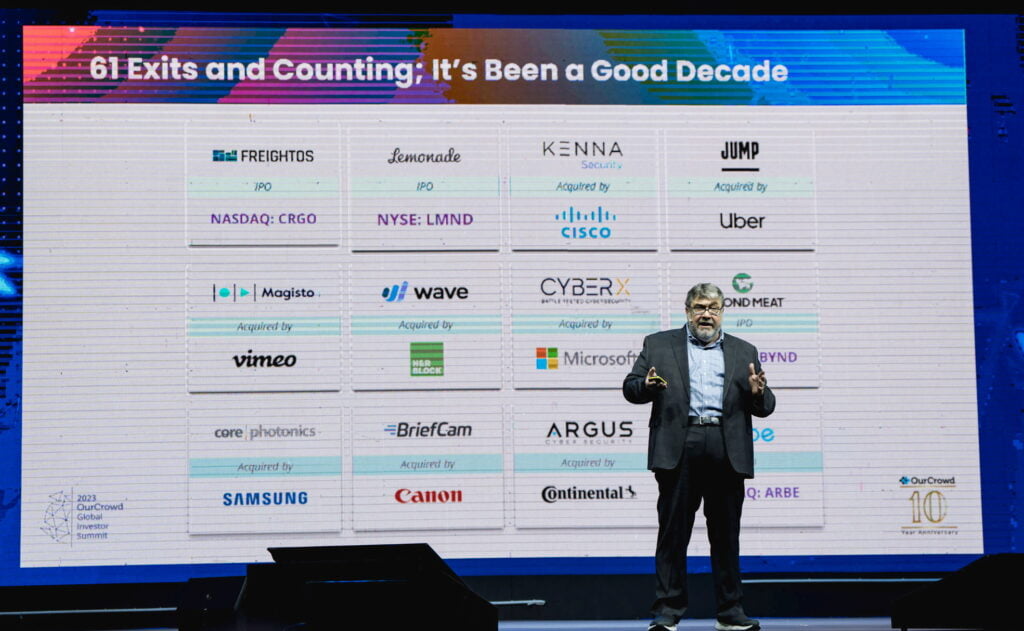
“It is an inspiring reminder of what can become possible with goodwill, openness, and an intention to harness our collective creativity toward finding solutions that benefit us all.”
He went on to say that our future will be determined “not by the resources of the ground, but by the resources of our minds” and through a spirit of collaboration.
“I invite each of you to step forward with whatever unique tools you bring to the table to join our collaborative endeavors and be part of humanity’s response to this unique challenge of our time.”
The summit, held at the International Convention Center (Binyenei HaUma), brought together investors and entrepreneurs from Israel, USA, Germany, UK, Canada, Singapore, Mexico, Japan, UAE, Ukraine and elsewhere, and showcased 200 leading startups from Israel and beyond.
High-profile visitors included Anil Soni, CEO of the WHO Foundation, Abdulla Abdul Aziz AlShamsi, Acting Director General of the Abu Dhabi Investment Office (ADIO), Lior Raz, star and creator of TV series Fauda, Israel MasterChef judge Michal Ansky, and US Ambassador to Israel Thomas Nides, who said the Accords “made Israel a stronger democratic Jewish state”.
Sign up for our free weekly newsletter
Subscribe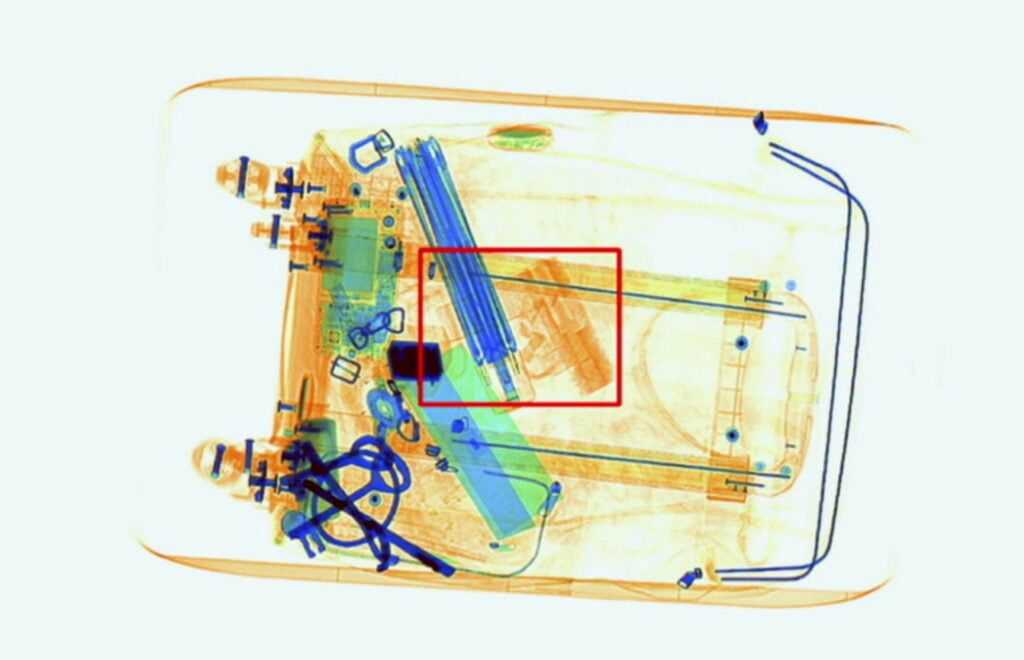
Among the startups giving live on-stage demonstrations was seeTrue, which has developed AI that screens airport baggage more quickly and more accurately than humans.
Company CEO Assaf Frenkel showed how machine learning was able to “see” a hard-to-detect 3D-printed gun hidden inside in a suitcase, by analyzing images from a standard luggage scanner.
The technology is 10 times faster than a person, three times more accurate, and it has half the error rate. Last year it found over 500,000 prohibited items at airports where it’s already deployed. It also meant passengers spent less time waiting in line – and more time buying duty-free.
Another Israeli startup, TechSee, takes the wasted time, and occasional cursing out of those frustrating calls to get your router, washing machine or home alarm fixed.
Callers send a picture of the faulty appliance. AI identifies the exact model and works out a solution, without having to send a technician.
It calms the caller’s nerves, and saves the $1 a minute it costs a company to handle a call, or the $200 for a home visit.
Both companies received funding from OurCrowd, the crowdfunding platform for early-stage startups that hosted the summit.
The platform was founded 10 years ago by venture capitalist Jon Medved, allowing individuals to make minimum investments of $10,000 in early-stage startups, many of them in Israel.
It has 220,000 members, has invested over $2.1 billion, and is recognized as the most active venture investor in Israel.
Medved said current economic and political difficulties, supply chain crisis, the worst financial recession in 50 years, and natural disasters exacerbated by climate change hadn’t dampened enthusiasm for the summit, which attracted a record attendance.
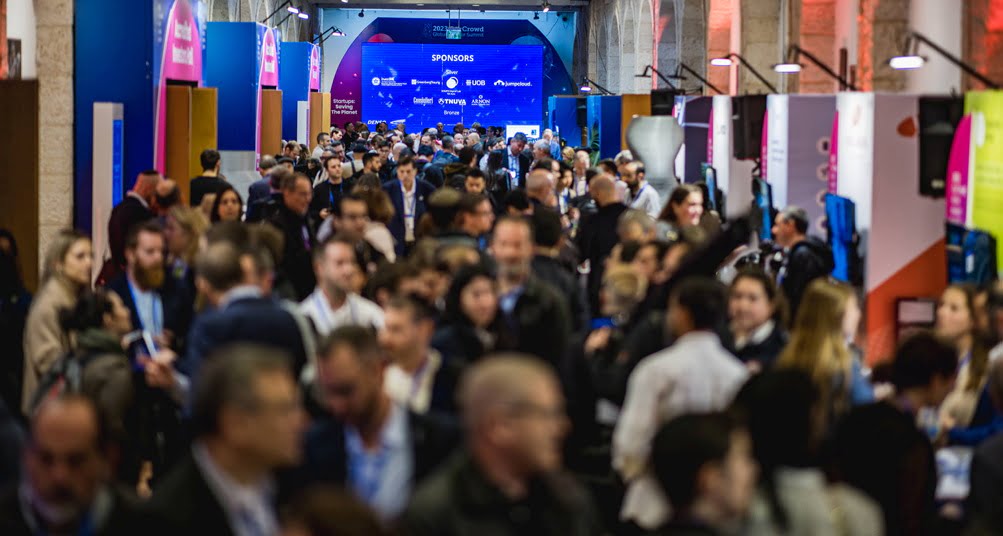
Delegates also heard the President touch on a controversy currently dominating headlines in Israel – proposals by the government to curb the court’s influence over law-making and public policy.
“We are at a critical juncture in a national debate about the way our democracy is structured,” he said.
“I’m doing my best to direct this debate into a constructive dialogue that will lead to an agreed-upon result that will strengthen, and foster, and protect Israeli democracy.”
Related posts

Editors’ & Readers’ Choice: 10 Favorite NoCamels Articles

Forward Facing: What Does The Future Hold For Israeli High-Tech?

Impact Innovation: Israeli Startups That Could Shape Our Future


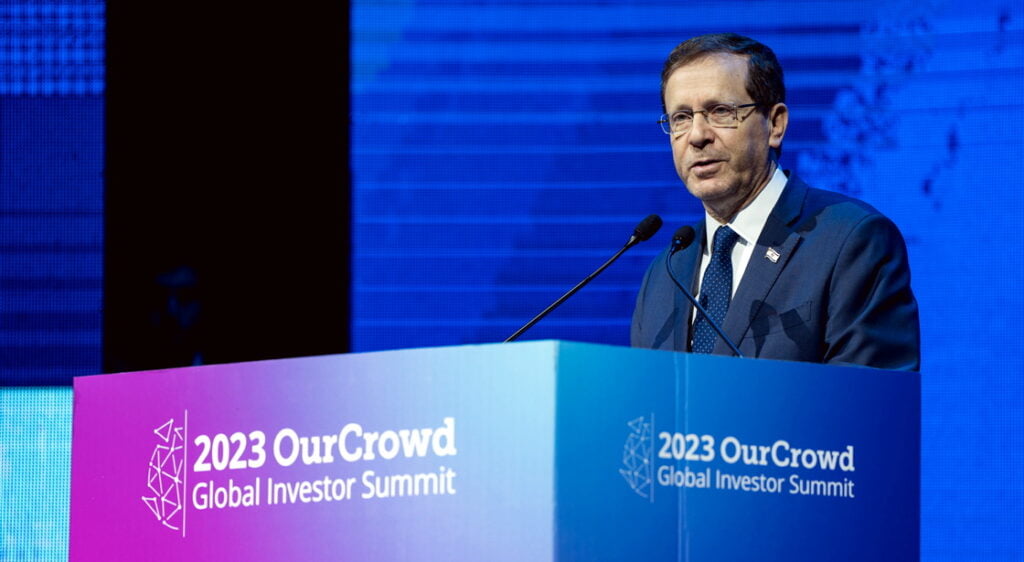

Facebook comments